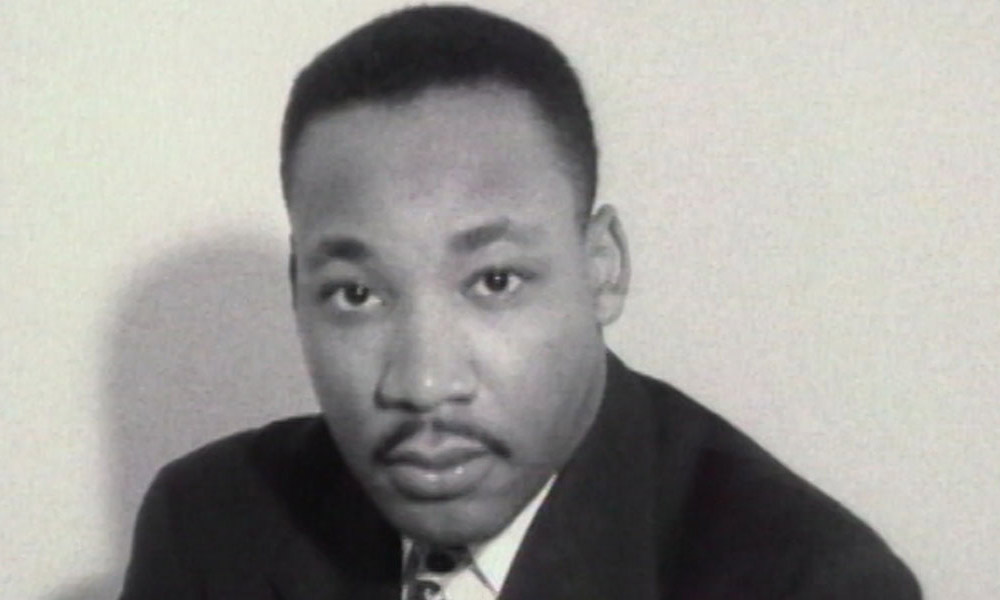“We just wanted America to be what it said they said it was going to be,” Andrew Young can be heard saying in “MLK/FBI,” describing the peaceful protests against segregation in Birmingham where the future mayor of Atlanta was an aide to the Dr. Martin Luther King Jr. in 1963. He doesn’t have to say what that is when the image of what America should be is so engrained in the popular consciousness from the time the pledge of allegiance is recited in kindergarten, but Sam Pollard offers up a different view in this unsettling and absorbing look at the files the FBI kept on King Jr. when they believed the civil rights movement could be a threat to America.
Although the full extent of the FBI’s dossier on King Jr. won’t be available to the public until 2027, “MLK/FBI” accesses what’s been declassified so far, strongly suggesting that the Bureau, under the leadership of J. Edgar Hoover, sought to destroy the civil rights leader’s reputation with evidence of his martial infidelity. Authorized by Attorney General Robert F. Kennedy Jr. to wiretap him under the suspicion he might’ve had ties to communism through an associate, the FBI’s access to King Jr.’s correspondence yielded lurid details of his personal life, which Pollard largely spares the audience from in favor of turning the questions on the FBI, an organization with little scrutiny at the time when their operations are typically shrouded in secrecy and broad public support cultivated from the image that was created for them with films and TV shows where they were portrayed as heroes.
“MLK/FBI” follows the recent trend of historical documentaries to rely almost entirely on archival imagery to tell its story, but the style has extraordinary resonance when Pollard’s interviews with the likes of scholars such as Donna Murch and David J. Garrow, whose book inspired the film, and MLK associates including Young and Clarence Jones can often act as contradictory to what you’re seeing as a clip of Jimmy Stewart appearing as a proud G-man in “The FBI Story” prefacing the specious notion that African-Americans were more receptive than other Americans to recruitment to the Communist party, and King Jr. appears to be at his most eloquent in public as you discover how the harassment is getting to him behind the scenes. Impressively exposing usually imperceptible inequities, “MLK/FBI” makes clear how the Bureau could wield the soft power of public perception while Black Americans needed to march on Washington by the thousands for the civil rights movement to gain legitimacy.
Of course, having the FBI conclude that the most effective way to tear King Jr. down would be to attack his image makes the scrutiny offered by Pollard and co-writers Benjamin Hedin and Laura Tomaselli especially poignant, and “MLK/FBI” is particularly illuminating in presenting how government actions were motivated by reasons having little to do with their purported intentions, with Hoover privately justifying his actions by claiming King Jr. was “morally unfit to lead Black America” when it appears he saw the entire movement threatening his preferred class hierarchy, and that King Jr’s decision to speak out against the Vietnam War is what led President Lyndon B. Johnson to take an interest in what Hoover had compiled on him rather than any potential allegiance to communism. Pollard, too, could be accused of taking on a far more sprawling investigation than what its initial parameters would seem to be, but that proves necessary to bring to light how deeply embedded racism has been in America’s institutions and how those in power have sought to stymie progress towards equality, from those in government to those behind the camera. Thankfully, Pollard uses his responsibly and mightily.
“MLK/FBI” will screen physically at the New York Film Festival on September 21st at 8 pm at the Queens Drive-In and virtually from September 21st starting at 8 pm EST through September 26th at 8 pm EST. It will next screen virtually through DOC NYC, streaming nationwide from November 11th through 19th.




